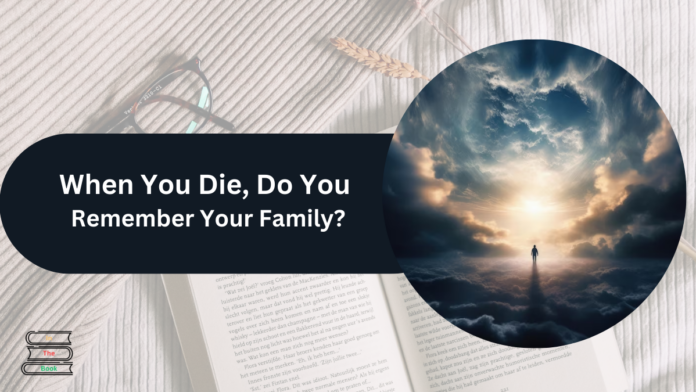The question of whether you remember your loved ones when you go to heaven is one that has intrigued many people.
Different religious and spiritual beliefs offer various perspectives on this matter, and the idea of an afterlife where connections with loved ones persist is a comforting thought for many. We will here get to know when you die, do you remember your family and more:
Contents
- Christian beliefs on when you die, do you remember your family
- Islamic perspectives
- Hindu and Buddhist views
- Philosophical and modern spiritual views
- Personal reflection
- Conclusion
- FAQs
- When you die, do you remember your family?
- What does the Bible say about remembering loved ones in heaven?
- How does Islam view family bonds in the afterlife?
- Do near-death experiences support the idea of remembering loved ones?
Christian beliefs on when you die, do you remember your family
Many Christians believe that in heaven, they will be reunited with their loved ones. This belief is often supported by various passages in the Bible. For example, in 1 Thessalonians 4:17, it states, “Then we who are alive, who are left, will be caught up together with them in the clouds to meet the Lord in the air, and so we will always be with the Lord.”
This suggests that believers will be together with their loved ones in the presence of God. Moreover, the story of the rich man and Lazarus in Luke 16:19-31 indicates that individuals retain their memories and identities in the afterlife.
The rich man recognizes Lazarus and remembers his own life on earth, which implies that personal memories, including those of loved ones, are preserved.
Islamic perspectives
In Islam, the concept of remembering loved ones in the afterlife is also present. The Quran describes paradise as a place of eternal happiness, where believers will be reunited with their families.
Surah At-Tur (52:21) says, “And those who believed and whose descendants followed them in faith. We will join with them their descendants.” This indicates that family bonds are maintained and cherished in heaven.
Hindu and Buddhist views
Hinduism and Buddhism offer different perspectives on the afterlife. In Hinduism, the belief in reincarnation suggests that souls may be reborn into new lives, potentially losing memories of past lives.
However, some Hindu traditions hold that in moksha (liberation from the cycle of rebirth), souls may attain a state of eternal bliss where they could remember their loved ones.
Buddhism, with its focus on enlightenment and nirvana, often emphasizes the transcendence of individual identity and attachments. However, some interpretations suggest that enlightened beings may retain a compassionate awareness of their past connections.
Philosophical and modern spiritual views
Modern spiritual and philosophical perspectives vary widely. Some people who have had near-death experiences report seeing and recognizing their loved ones, which suggests the continuity of personal relationships beyond death.
These experiences often describe a sense of overwhelming love and connection, reinforcing the idea that memories and bonds persist.
Personal reflection
Believing that we will remember our loved ones in heaven can provide great comfort. The idea that love transcends physical existence and continues in the afterlife can be a source of hope and solace.
Each religious and spiritual tradition offers unique insights into this profound question, reflecting the diverse ways humans understand life, death, and the beyond.
Conclusion
Whether you remember when you die, do you remember your family in heaven depends largely on your religious or spiritual beliefs. Christianity and Islam offer clear affirmations of eternal bonds with loved ones.
Hinduism and Buddhism provide more varied perspectives, emphasizing liberation and enlightenment. Modern spiritual experiences also suggest a continuity of love and connection.
FAQs
When you die, do you remember your family?
No, beliefs vary. Christianity and Islam generally support the idea of remembering loved ones. Hinduism and Buddhism offer different views, often focusing on liberation and enlightenment.
What does the Bible say about remembering loved ones in heaven?
The Bible suggests that individuals retain their identities and memories in the afterlife. For example, in 1 Thessalonians 4:17 and the story of the rich man and Lazarus in Luke 16:19-31, there are indications of personal memories being preserved.
How does Islam view family bonds in the afterlife?
Islam views paradise as a place where believers are reunited with their families. The Quran mentions that family bonds are maintained and cherished in heaven.
Do near-death experiences support the idea of remembering loved ones?
Yes, many people who have had near-death experiences report seeing and recognizing their loved ones, suggesting that personal relationships continue beyond death.
Read More:
- The Real Reason Invoices Go Unpaid — And How Collection Automation Can Fix It
- Best Places to Buy Diamonds and Engagement Rings Online
- Building Focus and Strategy Through Interactive Digital Experiences
- How Students’ Reading Interests Influence Their Motivation and Performance in Writing Assignments
- The Damages Resulting from the Use of Suboxone

Chandler is an avid automobile enthusiast who is passionate about all things on wheels. From the latest car models to classic vintage rides, I love exploring the automotive world’s intricate details and engineering marvels. With years of experience in test-driving, reviewing, and analyzing cars, I provide readers with comprehensive insights and honest opinions.


























